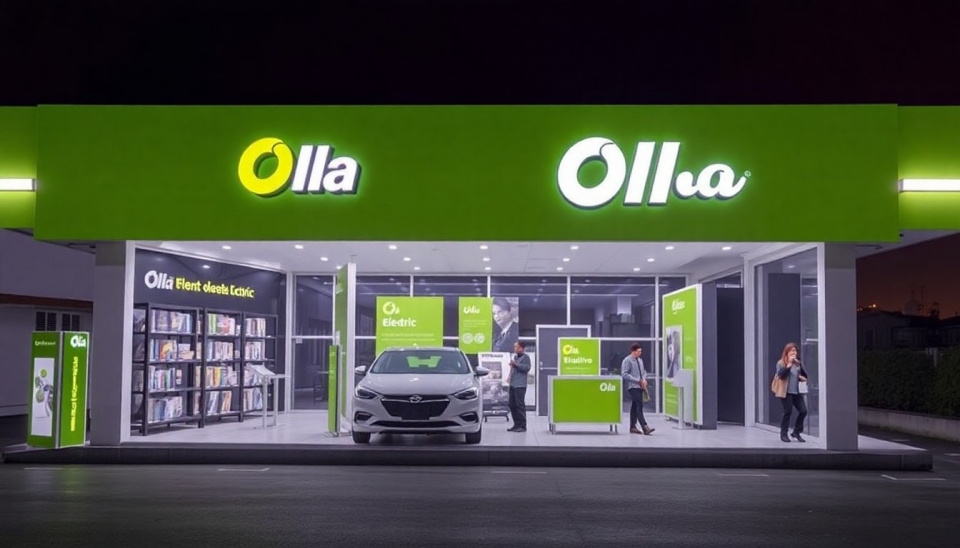
Ola Electric, the prominent Indian electric vehicle manufacturer, made headlines recently with its much-anticipated initial public offering (IPO). However, the initial excitement surrounding the company's stock offering has been quick to diminish, owing in part to a contentious debacle unfolding on social media platforms.
The IPO, launched as part of Ola Electric's plans to expand its market presence and bolster its manufacturing capabilities, initially captured considerable investor attention. Market analysts noted a strong debut as the company's share prices surged, reflecting high expectations for the future of electric vehicles in India and globally.
Yet, as swift as the surge in shares was, equally rapid was the pullback, attributed largely to a social media spat that has spilled into the public domain. This online altercation has proven to be a significant distraction, causing potential investors to approach the stock with caution, and in some cases, withdraw their initial optimism.
Reports suggest that the social media controversy involves high-profile stakeholders within the company, which has only amplified public scrutiny. The dispute appears to be rooted in differing visions for the company's long-term strategic direction, with each faction sharing their perspectives openly online. This has raised questions about the leadership's unity and the potential impact such disagreements might have on Ola Electric's operational execution and future growth.
In an industry as competitive and rapidly evolving as electric vehicles, investor confidence is paramount. The lack of cohesive messaging from the company's leadership could undermine investor trust, a crucial component for any organization looking to leverage public capital for growth. Concerns are growing that if not addressed promptly, these internal disputes could distract Ola Electric from its core mission and affect its standing in the competitive electric vehicle market.
To navigate this rocky terrain, it is imperative for Ola Electric's management to present a unified front and clarify their strategic roadmap to ensure attractive returns for anxious investors. How the company decides to handle this internal conflict might set a precedent not only for its corporate governance but also for the broader Indian start-up ecosystem that looks up to leaders like Ola Electric for inspiration.
In conclusion, while Ola Electric's IPO has undoubtedly placed a spotlight on the potential of electric vehicles in transforming transportation in India, the recent social media spat serves as a reminder of the complexities and hurdles faced by contemporary companies in maintaining investor confidence and organizational coherence in the digital age.
As the situation develops, stakeholders and market watchers alike will be keeping a close eye on how these dynamics play out and what it means for the future trajectory of Ola Electric and perhaps even the wider electric vehicle industry.
#OlaElectric #IPO #SocialMedia #Investors #ElectricVehicles #IndiaMarket #EVIndustry #CorporateGovernance
Author: Emily Collins

